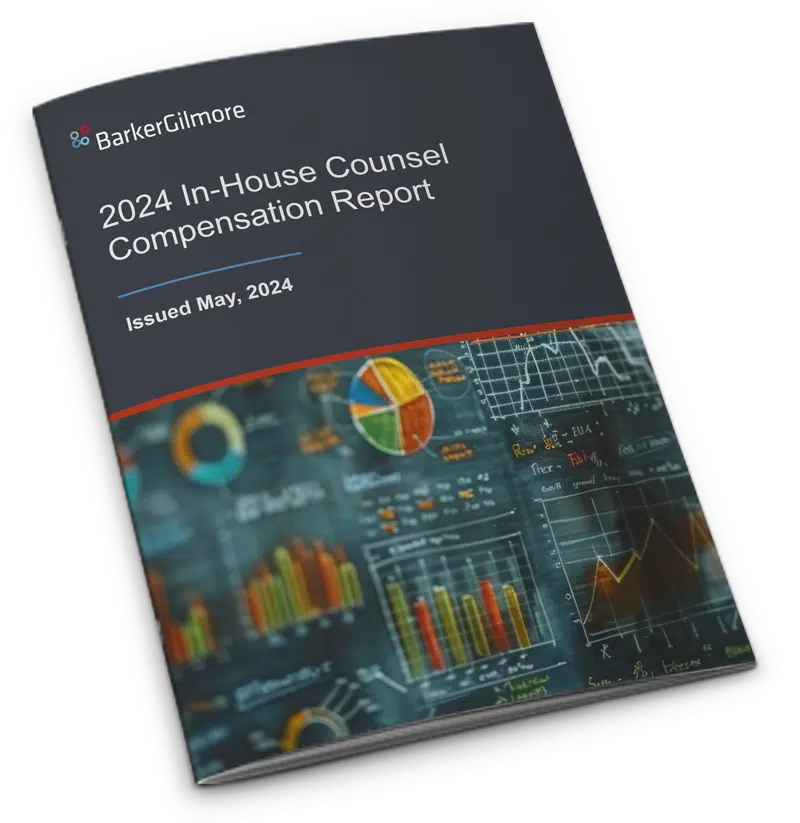Strategic utilization of external counsel plays a crucial role in navigating the complex legal landscape. Productive relationships are economical and drive outcomes that align with the organization’s business objectives. Achieving that level of productivity requires a strategic approach that aims to foster both short-term results and long-term value.
In the GC AdvantageSM webinar, “Strategies to Effectively Manage External Counsel Near and Far,” Jackie Rice, General Counsel and Corporate Secretary of MillerKnoll, and Adrienne Valencia Garcia, Senior Vice President and Deputy General Counsel, Commercial, of Cengage Group, joined me to discuss how to get the most value in relationships with external counsel. This article is a summary of our conversation.
Seeking External Counsel for International Issues
For U.S.-based companies dealing with matters in other countries, the goal is to streamline the work, maintain a consistent approach, and leverage various perspectives. At the same time, leveraging expertise in local culture, nuances, sensitivities, and language is essential. A local law firm in-country may manage many matters well, but issues that have multi-national scope or are affected by U.S. laws and practices may be easier to navigate with the assistance of a U.S. firm that employs professionals in that country. For matters that touch a variety of countries, a U.S.-based firm might provide more simplicity and consistency.
Whether an international firm or a local firm is used, attorneys in other countries will likely speak English or be able to find translators, so language is rarely a concern. What can be a concern is whether outside counsel in countries that do not follow common law understand common law principles well enough to help navigate a matter’s international implications. It is also crucial that overseas countries appreciate the tempo and demands of U.S. litigation and regulations.
RFPs in the Selection Process
An RFP process may lead to more competitive pricing, relationships with new firms, and opportunities to leverage additional capabilities with existing external counsel. The process can also uncover innovative ideas and strategies for managing matters, new price considerations, and better DE&I for your outside lawyers.
A team member who is familiar with RFP development should lead the process. Procurement professionals are also recommended to assist with scorekeeping, tracking, and ensuring that other company standards are met.
RFPs for legal work outside the U.S. will benefit from the advice of someone on the ground in a particular country or region, especially when inviting firms to participate. This may also assist foreign law firms that are not as familiar with the RFP process.
Streamlining Outside Counsel Relationships
There are advantages to working with a single law firm for matters in various districts and areas of law. Often, the more work done with a firm, the more opportunities to leverage advantageous pricing models or “extra benefits” such as no-cost training for legal department members. It is also worth negotiating a single point of contact and a single fee structure for all work done with each law firm you consider a strategic partner. The ability to call one “relationship partner” for all matters, rather than cold-calling partners in other offices or practice areas, can offer considerable time savings, as can having a consistent fee structure set in advance. Unfortunately, many firms operate under a model where each country has its own budget and pricing model, and the idea of a single worldwide relationship partner is still new for most.
Qualities to Look For When Selecting Outside Counsel
Industry expertise can add considerable value to the relationship when choosing outside counsel, especially when it’s a law firm that can fit the mold of a strategic partner. For instance, in a recent RFP, Adrienne and her team focused on external counsel offering tangible experience in IP and educational regulatory issues. Both areas are essential to Cengage’s long- and short-term business.
Another vital function of external counsel is to provide perspectives, approaches, and experience that the internal legal team does not have. Beyond expertise in a particular country, region, authority, or practice area, this could come from a firm that has collaborated with opposing counsel before or is familiar with the judge in a particular matter. Ask the firm about the creative solutions it can offer. External counsel should proactively share the practical implementations of the law for the company.
Coordinating Advice Between Law Firms
Often, a matter requires work from multiple law firms. Facts can splinter a matter in different directions, or a single firm may not have the expertise or appropriately located staff to oversee everything.
Clarity is crucial when working with multiple law firms on the same matter. Consider designating a lead firm or an individual who can lead the work. Ideally, the lead firm or individual should know the company, its culture, and risk tolerance. A firm that understands the intangibles is best positioned to advise on direction, coordinate all legal activity, and help keep other external counsel on track and within the company’s risk band.
All outside counsel should be brought together at the start of work, so everyone hears the same message about strategic outcomes and intended directions. Also, clarify their roles and responsibilities to each external counsel and communicate them to everyone.
Maintain clarity through standing calls – daily or weekly, as the urgency of the matter dictates – to share current information and note any approach alterations. On each call, verify that each firm knows the boundaries of its work and urge them to let the group know if something may move outside of those boundaries.
Consider also occasionally bringing all your law department’s outside counsel together for a group meeting or event. Although the firms might sometimes be competitors, they are also all working to serve the same client: you. Group meetings are an opportunity to share ideas and network. They also allow exploration into whether multiple outside counsel may be intersecting on matters without realizing it. Most importantly, group meetings of your law firms will enable you to announce new visions, goals, and plans for your business to all counsel.
AI and Outside Counsel
Artificial intelligence (AI) presents a range of opportunities for legal practitioners. Some companies have outright banned using AI by their external counsel, but law firms are either already using it in some capacity or are thinking about how to use it. Companies can avoid the many potential issues through a company AI policy, along with billing and general guidelines for outside counsel’s use of the technology.
Most companies require outside counsel to discuss the use of AI before they use it and to explore potential issues and areas of concern on a situation-by-situation basis. Various questions should be answered by company policy and guidelines or agreed upon with outside counsel whenever they consider using AI. Those questions include:
- How are you using AI?
- Which AI tools are being used?
- Is the AI tool proprietary so that critical or confidential information is not accidentally being shared?
- What data safeguards are in place to ensure information about or from our company does not end up where it should not?
- Is AI being used in IP work, and if so, how is proprietary information kept out of datasets?
- How will the use of AI impact billing?
- Will there be charges for the tool and the human work to check the accuracy of the AI’s output?
- How do you avoid double billing?
When to Terminate a Relationship
There are various reasons a law firm relationship is not working and needs to be terminated. Repeated inability to conform to your billing guidelines or meet your budgets are reasons, as is outside counsel claiming expertise in a particular specialty where their capability is weak. Sometimes, client service isn’t up to par, or outside counsel shows one level of responsiveness to the company CEO but is lax about responding to lower-level staff. Additionally, outside counsel and the company may not agree on the strategy, or outside counsel may not be aligned with the company’s risk appetite.
Another reason to terminate the relationship would be outside counsel’s failure to anticipate and answer questions or make recommendations when it is their job to do so. If the company makes its risk tolerance clear, outside counsel should be able to give clear guidance.
Legal Advice, Quality, and Costs
Higher rates or fees do not necessarily lead to higher-quality legal advice. Often, the only way to judge a firm’s quality is to collaborate with it.
It is a good idea to remember that as an outside counsel team becomes more experienced, rates for individual attorneys will increase. If an attorney has excellent legal skills, understands the company’s business and risk tolerance, and collaborates well with the in-house legal team, paying more as they gain experience can yield benefits that outpace the costs. However, this is not always the case. Communicate about succession planning with outside counsel. Share what the current attorneys are doing that the company wants to continue to see.
Law Firm Report Cards
One meaningful way to evaluate the performance of your outside counsel and look for ways to improve the relationship is with a firm report card. Despite the name, the most valuable report cards include the client’s evaluation of the law firm and its assessment of itself.
The report card works best when it is part of a regular process of giving outside counsel feedback on their legal practices, accessibility, communications process, and more. Ideally, the discussion will spark idea exchanges and foster deeper collaboration.
Even how a firm responds to a request for self-evaluation on a report card can provide valuable information. Its engagement and approach can speak volumes about a commitment to improvement.
Understand Legal Fees and Billing
Especially with a new relationship, get a clear understanding of what the company will be billed for. For example, if a partner has several junior attorneys attend a meeting with them, will the firm bill for each junior’s time? Level set from the beginning to establish trust and avoid repeated conversations about billing.
Develop Strategic Relationships with Outside Counsel
If managed strategically, outside counsel should become an effective extension of your team. Understand how to choose the right firms, dialogue regularly, ensure that firms know what they are expected to undertake, and hold them accountable.
A trusted advisor from BarkerGilmore, where some of the world’s most experienced GCs serve as advisors, can help you develop and manage effective strategic relationships with outside counsel. Our advisors have decades of experience helping maximize the efficiency and effectiveness of corporate legal and compliance functions.
Audrey Rubin and our team of professionals are happy to help accelerate the initiatives that you’re already pursuing or to supplement your current strategic thinking to help you realize your vision. Please reach out if you or your organization may benefit from our recruiting, leadership development and coaching, or legal and compliance department consulting services. Let BarkerGilmore help you build and optimize your legal and compliance departments.
Connect with a legal recruiting advisor
* indicates required fields






